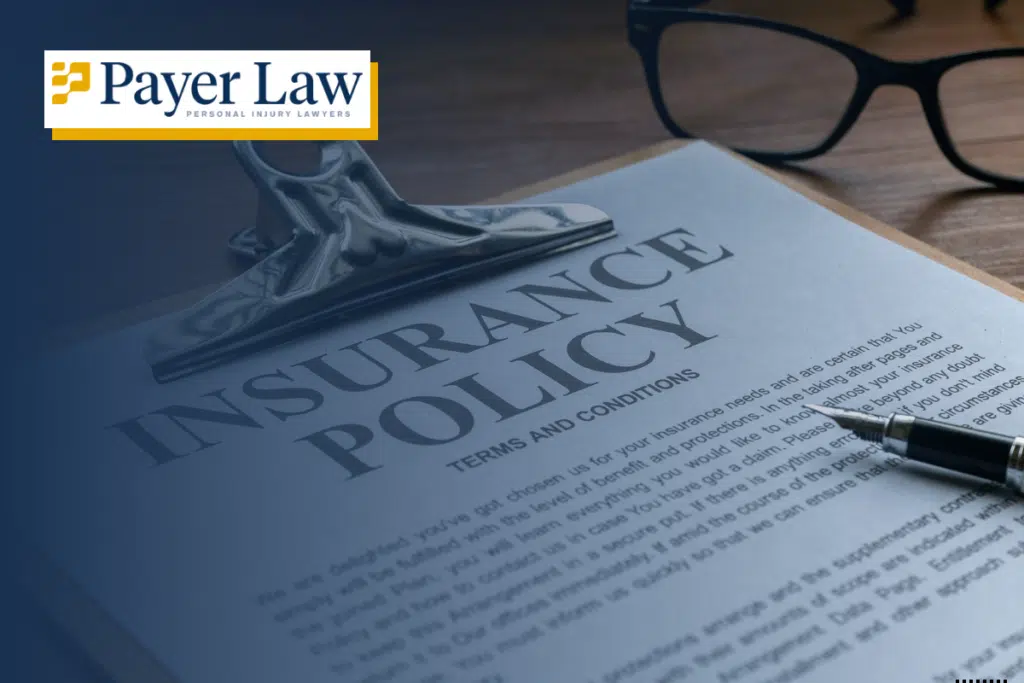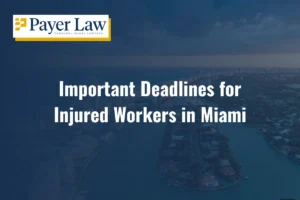If you are injured in an accident or because of another party’s negligence, intentional torts, or wrongdoing, you may be entitled to compensation for your damages. Most personal injury cases begin with an insurance claim with the at-fault party’s liability insurance company. Liability insurance pays damages when an insured causes harm to someone for a covered event.
For example, a car insurance liability policy would pay damages to an accident victim for a crash caused by an insured driver. However, injured parties have the burden of proving that the other party caused their injuries for the insurance company to be liable for a claim.
Even when you have a valid personal injury claim, the insurance company may try to avoid paying your claim. Insurance companies protect their best interests first, which means paying as little as possible to settle claims. The more the company must pay in claims, the less it earns in profits.
What are the Ways Insurance Companies Avoid Paying Personal Injury Claims in Florida?
Insurance companies use various tactics to avoid paying personal injury claims. Some common tactics to watch for when dealing with an insurance claim include:
Pressuring You to Accept a Quick Settlement
The insurance adjuster may pressure you to accept a quick settlement. However, if you are still being treated by a doctor, you cannot be sure how much your case is worth. If you agree to a settlement, you waive your right to sue any parties for damages. Therefore, talk with a lawyer before you sign a settlement agreement or other forms to verify the amount offered is the actual value of your claim.
Telling You That You Must Provide a Statement or Sign a Medical Release for the Company to Process the Claim
The insurance company searches for information it can use against you to lower the value of your damages or deny your claim. If you provide a written or recorded statement, your comments could hurt your case. Likewise, signing a blanket medical release allows the company to review all medical records searching for pre-existing conditions. You do not have to do either of these things for the company to process your claim.
Blaming You for Causing Your Injuries
Florida’s comparative fault statute reduces the amount you receive for damages by your percentage of fault for causing your injuries. For instance, if you are 25% to blame for causing a car accident, your compensation is reduced by one-fourth. If you are 50% or more to blame, you cannot recover any money for your claim.
Beware of insurance adjusters asking questions about what you did before the accident, including telling you that your responses must be recorded. The adjuster is searching for information or trying to trick you into saying something that could be used to allege contributory fault.
Intentionally Delaying a Personal Injury Claim
The company knows you have been out of work and have medical bills and other expenses. It may delay your personal injury claim to cause you more stress. The goal is for you to accept a low settlement offer so that you will receive some money now instead of waiting.
Undervaluing Damages
Florida personal injury laws allow for economic and non-economic damages. The insurance company will intentionally downplay your injuries to undervalue your damages. If you are unsure how much your damages are worth or the types of damages you can receive, don’t settle your claim without legal advice.
Bad-Faith Insurance Practices
Florida insurance companies must act in good faith when investigating and settling insurance claims. Some of their tactics to avoid paying claims may rise to the level of bad faith. Examples of bad faith insurance practices include, but are not limited to:
- Lying to you about the law or the insurance contract
- Refusing to investigate a claim
- Using deceptive and unfair practices to deny your claim
- Refusing to explain why they are denying your claim
- Requiring unnecessary information or documentation to delay a claim
- Encouraging you not to consult an Orlando personal injury lawyer
If an insurance company acts in bad faith, you may have a claim separate from your personal injury claim. It is best to seek legal advice if you suspect the insurance company is acting unfairly.
How Can I Protect My Rights When I File an Insurance Claim for a Personal Injury or Accident?
Talk with an Orlando personal injury lawyer as soon as possible after an injury or accident. Working with an experienced personal injury attorney levels the playing field with the insurance company. The attorney understands tricks insurance companies use to avoid paying personal injury claims and how to handle bad faith tactics.
Contact Payer Law Personal Injury Lawyers today to schedule a free consultation to discuss how we can help you deal with the insurance company.
Contact Our Orlando Personal Injury Law Firm For Help Today
If you’ve been injured in an accident in Orlando, Florida, and need legal help, contact our experienced personal injury lawyers at Payer Law Personal Injury Lawyers to schedule a free consultation today.






